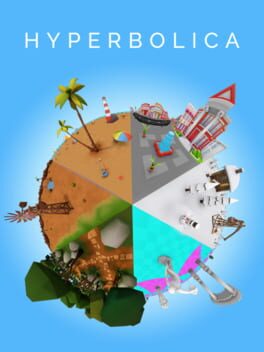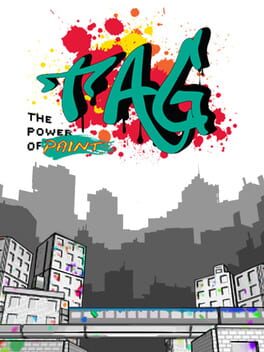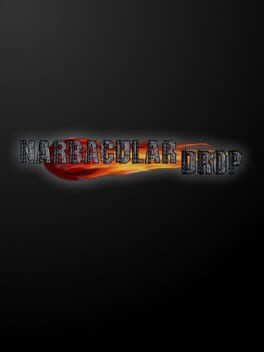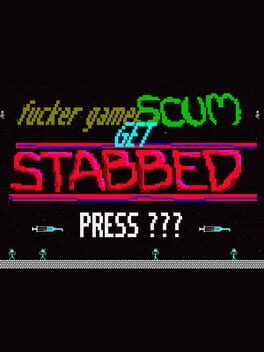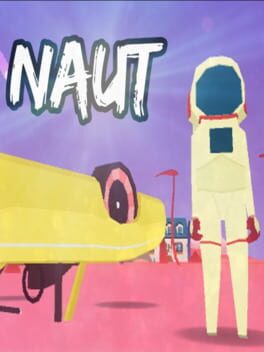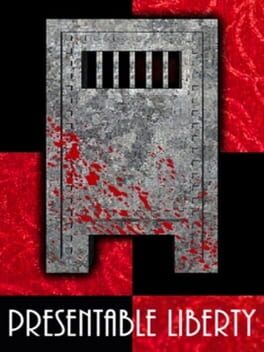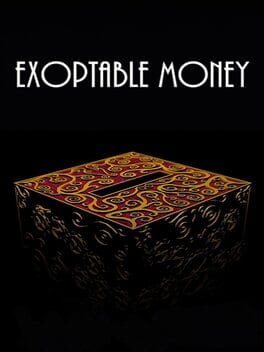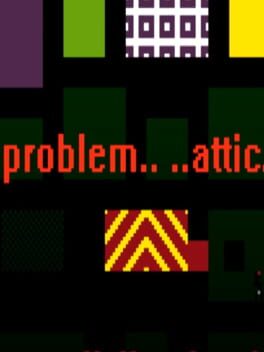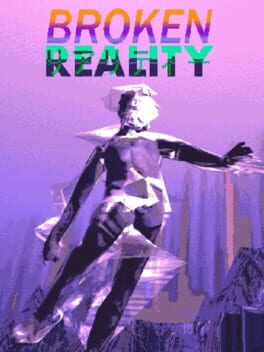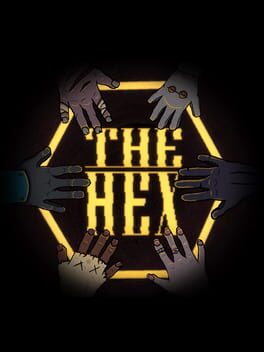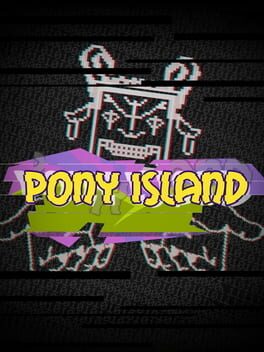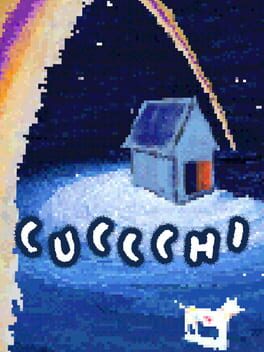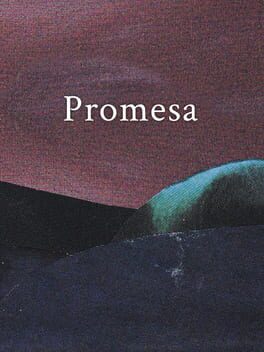Nico77A
2022
ENG: Everything seems to be far away from everything even though it is not so. It is difficult to explain. It's something that has to be experienced. Unfortunately it gets little out of it mechanically beyond the occasional interesting mini-game and has too much inconsequential dialogue.
In its favor I will say that the art style is great, some dialogue is actually funny and / or interesting, and that it lasts just long enough.
Despite considering it a good game by the skin of its teeth, it's a work that I would recommend to everyone just for the fact that it's something you've never seen before. Mind you, it can make you dizzy.
ESP: Todo parece estar lejos de todo aunque no sea tan así. Es difícil de explicar. Es algo que se tiene que experimentar. Desafortunadamente se le saca poco provecho mecánicamente más allá de algún que otro minijuego interesante y tiene demasiado dialogo intrascendente.
A su favor voy a decir que el estilo artistico es genial, algunos dialogos en realidad son graciosos y/o interesantes, y que dura lo justo y necesario.
A pesar de considerarlo un buen juego por los pelos, es una obra que recomendaría a todo el mundo solo por el hecho de que es algo que nunca se vio antes. Eso si, te puede llegar a marear.
In its favor I will say that the art style is great, some dialogue is actually funny and / or interesting, and that it lasts just long enough.
Despite considering it a good game by the skin of its teeth, it's a work that I would recommend to everyone just for the fact that it's something you've never seen before. Mind you, it can make you dizzy.
ESP: Todo parece estar lejos de todo aunque no sea tan así. Es difícil de explicar. Es algo que se tiene que experimentar. Desafortunadamente se le saca poco provecho mecánicamente más allá de algún que otro minijuego interesante y tiene demasiado dialogo intrascendente.
A su favor voy a decir que el estilo artistico es genial, algunos dialogos en realidad son graciosos y/o interesantes, y que dura lo justo y necesario.
A pesar de considerarlo un buen juego por los pelos, es una obra que recomendaría a todo el mundo solo por el hecho de que es algo que nunca se vio antes. Eso si, te puede llegar a marear.
ENG: Valve saw that the idea was great, hired them, Portal 2 was born, blah blah blah blah.
It's like Portal 2 but without portals, without plot and with a gel that allows you to stick to any surface. Also the fact of being set in a grayish city is a success for obvious reasons.
ESP: Valve vio que la idea era genial, los contrató, de ahí nace Portal 2, bla bla bla.
Es como Portal 2 pero sin portales, sin trama y con un gel que te permite pegarte a cualquier superficie. También el hecho de estar ambientado en una ciudad grisácea es un acierto por obvias razones.
It's like Portal 2 but without portals, without plot and with a gel that allows you to stick to any surface. Also the fact of being set in a grayish city is a success for obvious reasons.
ESP: Valve vio que la idea era genial, los contrató, de ahí nace Portal 2, bla bla bla.
Es como Portal 2 pero sin portales, sin trama y con un gel que te permite pegarte a cualquier superficie. También el hecho de estar ambientado en una ciudad grisácea es un acierto por obvias razones.
2005
ENG: Everyone knows Narbacular Drop for one reason: it was the final project of some students at a university, Valve was interested in the game, hired the developers, and the rest is history with Portal.
The plot is witty to say the least. We control a princess who was trapped by a demon in a cave, or something like that. Oh, and this princess has no knees, ergo, she can't jump. Funny. Sadly it looks like they ran out of time for the ending. You can tell this game lacks quite a bit of polish. And not only for the plot, which is half-baked. But by the fact of being able to shoot portals through other portals. That's when you realize how broken it is.
It doesn't have the same magic, the same essence, but the truth is that this is the basis of Portal.
ESP: Todo el mundo conoce Narbacular Drop por una razón: fue el proyecto final de unos estudiantes de una universidad, a Valve le interesó el juego, contrató a los desarrolladores, y el resto es historia con Portal.
La trama es ocurrente cuanto menos. Controlamos a una princesa que fue atrapada por un demonio en una cueva, o algo así. Ah, y esta princesa no tiene rodillas, ergo, no puede saltar. Gracioso. Lamentablemente parece que se quedaron sin tiempo para el final. Se nota que a este juego le falta bastante pulido. Y no solo por la historia que se queda a medias. Sino por el hecho de poder disparar portales a través de otros portales. Ahí es cuando uno se da cuenta de lo roto que está.
No tiene la misma magia, la misma esencia, pero lo cierto es que acá están las bases de Portal.
The plot is witty to say the least. We control a princess who was trapped by a demon in a cave, or something like that. Oh, and this princess has no knees, ergo, she can't jump. Funny. Sadly it looks like they ran out of time for the ending. You can tell this game lacks quite a bit of polish. And not only for the plot, which is half-baked. But by the fact of being able to shoot portals through other portals. That's when you realize how broken it is.
It doesn't have the same magic, the same essence, but the truth is that this is the basis of Portal.
ESP: Todo el mundo conoce Narbacular Drop por una razón: fue el proyecto final de unos estudiantes de una universidad, a Valve le interesó el juego, contrató a los desarrolladores, y el resto es historia con Portal.
La trama es ocurrente cuanto menos. Controlamos a una princesa que fue atrapada por un demonio en una cueva, o algo así. Ah, y esta princesa no tiene rodillas, ergo, no puede saltar. Gracioso. Lamentablemente parece que se quedaron sin tiempo para el final. Se nota que a este juego le falta bastante pulido. Y no solo por la historia que se queda a medias. Sino por el hecho de poder disparar portales a través de otros portales. Ahí es cuando uno se da cuenta de lo roto que está.
No tiene la misma magia, la misma esencia, pero lo cierto es que acá están las bases de Portal.
2015
2015
ENG: If there is one word that could define this game, it is, without a doubt, ridiculous. Ridiculous because the situations we are presented with are laughable. This is, supposedly, a horror game. It would do better to be a parody, and even with that, I think it would still be a lousy game. If you want something of this style, but well done, play Start Survey.
ESP: Si hay una palabra con la que podría definir a este juego, esa es, sin duda, ridículo. Ridículo porque las situaciones que nos plantean son irrisorias. Esto es, supuestamente, un juego de terror. Le vendría mejor ser una parodia, y aun con esas, creo que me seguiría pareciendo una pésimo juego. Si quieren algo de este estilo, pero bien hecho, jueguen Start Survey.
ESP: Si hay una palabra con la que podría definir a este juego, esa es, sin duda, ridículo. Ridículo porque las situaciones que nos plantean son irrisorias. Esto es, supuestamente, un juego de terror. Le vendría mejor ser una parodia, y aun con esas, creo que me seguiría pareciendo una pésimo juego. Si quieren algo de este estilo, pero bien hecho, jueguen Start Survey.
2014
ENG: Good. This is much better than Exoptable Money. We're in a prison and, surprise surprise, there's nothing to do. Except for a handheld console with fun mini-games to pass the time. While we're distracted, we'll get letters from various people: a doting grandmother who runs a bakery, an adventurous friend, an overly nice "friend", and capitalism itself.
Unlike the previous game, which was in 2D, here we move to 3D. Of course, there is not much to do due to the intrinsic nature of a prison, but it is interesting to see how this space is transformed by the objects that are given to us.
Finally, as is evident, the whole game is an allegory of freedom. Our adventurous friend, so opposed to us, dies. Grandma dies, tired of waiting for us. The extravagant friend throws in the towel and shoots himself. But capitalism lives on.
ESP: Bueno. Esto está mucho mejor que Exoptable Money. Estamos en una cárcel y, sorpresa, no hay nada para hacer. A excepción de una consola portátil con divertidos minijuegos para pasar el rato. Mientras nos distraigamos, nos llegarán cartas de diversas personas: una cariñosa abuela que lleva una pastelería, un amigo aventurero, un "amigo" demasiado agradable, y el capitalismo en persona.
A diferencia del anterior juego, que era en en 2D, acá se pasa al 3D. Claro que no hay mucho que hacer por la naturaleza intrínseca de una cárcel, pero es interesante ver como se va transformando ese espacio por los objetos que nos regalan.
En fin, como es evidente, todo el juego es una alegoría la libertad. Nuestro amigo aventurero, tan contrapuesto a nosotros, fallece. La abuelita se muere, cansada de esperarnos. El amigo extravagante tira la toalla y se pega un tiro. Pero el capitalismo sigue vivo.
Unlike the previous game, which was in 2D, here we move to 3D. Of course, there is not much to do due to the intrinsic nature of a prison, but it is interesting to see how this space is transformed by the objects that are given to us.
Finally, as is evident, the whole game is an allegory of freedom. Our adventurous friend, so opposed to us, dies. Grandma dies, tired of waiting for us. The extravagant friend throws in the towel and shoots himself. But capitalism lives on.
ESP: Bueno. Esto está mucho mejor que Exoptable Money. Estamos en una cárcel y, sorpresa, no hay nada para hacer. A excepción de una consola portátil con divertidos minijuegos para pasar el rato. Mientras nos distraigamos, nos llegarán cartas de diversas personas: una cariñosa abuela que lleva una pastelería, un amigo aventurero, un "amigo" demasiado agradable, y el capitalismo en persona.
A diferencia del anterior juego, que era en en 2D, acá se pasa al 3D. Claro que no hay mucho que hacer por la naturaleza intrínseca de una cárcel, pero es interesante ver como se va transformando ese espacio por los objetos que nos regalan.
En fin, como es evidente, todo el juego es una alegoría la libertad. Nuestro amigo aventurero, tan contrapuesto a nosotros, fallece. La abuelita se muere, cansada de esperarnos. El amigo extravagante tira la toalla y se pega un tiro. Pero el capitalismo sigue vivo.
2014
ENG: Wait: the video game. No, but seriously, it's horrible. The only thing to do in this game is to wait for money to come out of a box and buy things to make it come out even more.
I guess, through the letters that are coming to us, it makes interesting comments about capitalism. But it's done in the worst possible way. A pity.
ESP: Esperar: el videojuego. No, pero en serio, es horrible. La única cosa que hay para hacer en este juego es esperar a que salga dinero de una caja e ir comprando cosas para que salga aún más.
Supongo que, mediante las cartas que nos van llegando, hace comentarios interesantes sobre el capitalismo. Peeeeeero está hecho de la peor forma posible. Una lástima.
I guess, through the letters that are coming to us, it makes interesting comments about capitalism. But it's done in the worst possible way. A pity.
ESP: Esperar: el videojuego. No, pero en serio, es horrible. La única cosa que hay para hacer en este juego es esperar a que salga dinero de una caja e ir comprando cosas para que salga aún más.
Supongo que, mediante las cartas que nos van llegando, hace comentarios interesantes sobre el capitalismo. Peeeeeero está hecho de la peor forma posible. Una lástima.
2013
ENG: Rare. Strange. Abstract. Call it what you will. If there's one thing for sure, it's that Liz Ryerson's game is unique and, above all, uncomfortable. Uncomfortable because the rules change constantly and without warning. Uncomfortable because you never quite know what you can and can't do. Uncomfortable because the aesthetics are uncomfortable. Uncomfortable because it's an uncomfortable game. It has to be. That is to say, to my way of seeing it, the meaning of Problem Attic is quite clear due to several elements that, in the midst of all that sea of abstraction, can be elucidated. Between the masculine and the feminine. We are talking about gender dysphoria. For the uninitiated: "Gender dysphoria is the term for a profound sense of uncomfortable and distress that can occur when your biological sex does not match your gender identity"
ESP: Raro. Extraño. Abstracto. Llámenlo como quieran. Si hay algo seguro es que el juego de Liz Ryerson es singular y, sobre todo, incomodo. Incomodo porque las reglas cambian constantemente y sin previo aviso. Incomodo porque nunca sabés bien que podés hacer y que no. Incomodo porque la estética es incomoda. Incomodo porque es un juego incomodo. Tiene que serlo. Es decir, a mi forma de verlo, está bastante claro el significado de Problem Attic debido a diversos elementos que, en medio de todo ese mar de abstracción, se pueden dilucidar. Entre lo masculino y lo femenino. Se nos habla de disforia de género. Para el que no sepa del tema: "Disforia de género es el término para una profunda sensación de incomodidad y aflicción que puede ocurrir cuando su sexo biológico no coincide con su identidad de género"
ESP: Raro. Extraño. Abstracto. Llámenlo como quieran. Si hay algo seguro es que el juego de Liz Ryerson es singular y, sobre todo, incomodo. Incomodo porque las reglas cambian constantemente y sin previo aviso. Incomodo porque nunca sabés bien que podés hacer y que no. Incomodo porque la estética es incomoda. Incomodo porque es un juego incomodo. Tiene que serlo. Es decir, a mi forma de verlo, está bastante claro el significado de Problem Attic debido a diversos elementos que, en medio de todo ese mar de abstracción, se pueden dilucidar. Entre lo masculino y lo femenino. Se nos habla de disforia de género. Para el que no sepa del tema: "Disforia de género es el término para una profunda sensación de incomodidad y aflicción que puede ocurrir cuando su sexo biológico no coincide con su identidad de género"
2018
ENG: We control a nameless user navigating through diverse and extravagant virtual worlds. Similar to Jazzpunk, but not tonally, of course.
Anyway, as tools that will help us to advance through these places, we will have at our disposal:
- A "liker" with which we can give likes to ads.
- A katana to get rid of annoying pop-ups that block our way.
- A credit card to consume to your heart's content.
- A cursor to swing between links.
- A camera to get even more likes.
- And finally, a sort of compass that acts as a checkpoint.
Strange reflections of an internet that never existed. Conscious parody or senseless glorification? I think the former. Browsing these spaces feels genuine. With quirky characters we are told a simple but effective story.
ESP: Controlamos a un usuario sin nombre navegando por diversos y extravagantes mundos virtuales. Similar a Jazzpunk, no tonalmente, eso sí. Acá todo tiene tintes retro y vaporwave.
De cualquier modo, como herramientas que nos ayudaran a avanzar por estos lugares, tendremos a nuestra disposición:
- Un "liker" con el que podremos dar likes a anuncios.
- Una katana para deshacernos de las molestas ventanas emergentes que nos bloquean el paso.
- Una tarjeta de crédito para consumir hasta el hartazgo.
- Un cursor para balancearse entre los enlaces.
- Una cámara de fotos para ganar aún más likes.
- Y por último, una suerte de brújula que actúa como checkpoint.
Extraños reflejos de un internet que nunca existió. ¿Parodia consciente o ensalzamiento insensato? Creo lo primero. Navegar por estos espacios se siente genuino. Con unos personajes estrafalarios se nos cuenta una historia simple pero eficaz.
Anyway, as tools that will help us to advance through these places, we will have at our disposal:
- A "liker" with which we can give likes to ads.
- A katana to get rid of annoying pop-ups that block our way.
- A credit card to consume to your heart's content.
- A cursor to swing between links.
- A camera to get even more likes.
- And finally, a sort of compass that acts as a checkpoint.
Strange reflections of an internet that never existed. Conscious parody or senseless glorification? I think the former. Browsing these spaces feels genuine. With quirky characters we are told a simple but effective story.
ESP: Controlamos a un usuario sin nombre navegando por diversos y extravagantes mundos virtuales. Similar a Jazzpunk, no tonalmente, eso sí. Acá todo tiene tintes retro y vaporwave.
De cualquier modo, como herramientas que nos ayudaran a avanzar por estos lugares, tendremos a nuestra disposición:
- Un "liker" con el que podremos dar likes a anuncios.
- Una katana para deshacernos de las molestas ventanas emergentes que nos bloquean el paso.
- Una tarjeta de crédito para consumir hasta el hartazgo.
- Un cursor para balancearse entre los enlaces.
- Una cámara de fotos para ganar aún más likes.
- Y por último, una suerte de brújula que actúa como checkpoint.
Extraños reflejos de un internet que nunca existió. ¿Parodia consciente o ensalzamiento insensato? Creo lo primero. Navegar por estos espacios se siente genuino. Con unos personajes estrafalarios se nos cuenta una historia simple pero eficaz.
2021
ENG: I was never a fan of card games, and still am not. However, in view of the fact that this is Daniel Mullins' third game, and having had good experiences previously, I decided to give it a try. It was a good decision. Inscryption is wonderful. Each of its 3 parts is. With different rules and environments, the game knows when to change. As for the meta-narrative, so present in Mullins' games, here it is presented through the so-called "found footage" in which we will see the misadventures of an exaggerated card youtuber. It is not as powerful and nuanced a story as The Hex. But it fulfills its function.
ESP: Nunca fui fanático de los juegos de cartas, y sigo sin serlo. Sin embargo, en vista que este es el tercer juego de Daniel Mullins, y por haber tenido buenas experiencias con anterioridad, decidí darle una chance. Fue una buena decisión. Inscryption es maravilloso. Cada una de sus 3 partes lo es. Con distintas reglas y ambientes, el juego sabe cuando cambiar. En cuanto a la metanarrativa, tan presente en los juegos de Mullins, acá se presenta mediante el denominado "found footage" en el cual veremos las desventuras de un exagerado youtuber de cartas. No es una historia tan potente y con tantos matices como la de The Hex. Pero cumple con su función.
ESP: Nunca fui fanático de los juegos de cartas, y sigo sin serlo. Sin embargo, en vista que este es el tercer juego de Daniel Mullins, y por haber tenido buenas experiencias con anterioridad, decidí darle una chance. Fue una buena decisión. Inscryption es maravilloso. Cada una de sus 3 partes lo es. Con distintas reglas y ambientes, el juego sabe cuando cambiar. En cuanto a la metanarrativa, tan presente en los juegos de Mullins, acá se presenta mediante el denominado "found footage" en el cual veremos las desventuras de un exagerado youtuber de cartas. No es una historia tan potente y con tantos matices como la de The Hex. Pero cumple con su función.
2018
ENG: It is a stormy night. In a seedy bar/hotel, the owner receives a call warning him that there will be a murder. Dismayed, he gives the warning to his 6 tenants. 6 playable characters. 6 different ways to play. 6 stories with their conflicts and disenchantments. Following the line of Pony Island, here the meta-narrative goes even further. With a plot a thousand times more interesting and more elaborate that tells us about the development and the video game industry, egocentrism, delusions of grandeur, free will, and existence.
ESP: Es una tormentosa noche. En un bar/hotel de mala muerte el dueño recibe una llamada la cual le advierte que allí habrá un asesinato. Consternado, da el aviso a sus 6 inquilinos. 6 personajes jugables. 6 maneras distintas de jugar. 6 historias con sus conflictos y desencantos. Siguiendo la línea de Pony Island, acá la metanarrativa va aún más allá. Con una trama mil veces más interesante y más elaborada que nos habla del desarrollo y la industria de los videojuegos, el egocentrismo, los delirios de grandeza, el libre albedrío, y el existir.
ESP: Es una tormentosa noche. En un bar/hotel de mala muerte el dueño recibe una llamada la cual le advierte que allí habrá un asesinato. Consternado, da el aviso a sus 6 inquilinos. 6 personajes jugables. 6 maneras distintas de jugar. 6 historias con sus conflictos y desencantos. Siguiendo la línea de Pony Island, acá la metanarrativa va aún más allá. Con una trama mil veces más interesante y más elaborada que nos habla del desarrollo y la industria de los videojuegos, el egocentrismo, los delirios de grandeza, el libre albedrío, y el existir.
2016
ENG: Pony Island, as far as gameplay is concerned, is not much of a game. Half of the game is about making a pony jump and the other half is about solving simple puzzles. Which aren't bad, but they're no big deal. The fun of this game lies in its meta-narrative and its changing aesthetic. Things that Daniel Mullins will continue to do in his next games. In short, much more than a pony game.
ESP: Pony Island, si hablamos en lo que a jugabilidad respecta, no es la gran cosa. Mitad del juego es hacer saltar a un poni y la otra mitad es resolver puzzles simples. Qué no están mal, pero no son la gran cosa. La gracia de este juego radica en su metanarrativa y en su estética cambiante. Cosas que Daniel Mullins seguirá haciendo en sus próximos juegos. En definitiva, mucho más que un juego de ponis.
ESP: Pony Island, si hablamos en lo que a jugabilidad respecta, no es la gran cosa. Mitad del juego es hacer saltar a un poni y la otra mitad es resolver puzzles simples. Qué no están mal, pero no son la gran cosa. La gracia de este juego radica en su metanarrativa y en su estética cambiante. Cosas que Daniel Mullins seguirá haciendo en sus próximos juegos. En definitiva, mucho más que un juego de ponis.
2021
ENG: I'll be frank: I didn't know who Enzo Cucchi was at the time of playing Cuccchi. I did some research about him, I saw his works, and if I have to highlight something about this game is how he translates the painting to what would be the gameplay. That is to say, painting is a static, flat, still thing and what Cuccchi does is to translate the aesthetics of Enzo Cucchi's works to the videogame adding depth, perspective changes and, obviously, interactivity.
I see many people commenting on the unnecessaryness of the life system, which manifests itself with skull-shaped enemies, and the collection of objects, which does the same with eyes. From all of the above, it would seem that there is a lack of confidence on the part of the game. But I disagree. It turns out that, in the course of this very picturesque adventure, there is a clear sense of "invasion" of part of the city. Trains, ships, smoke, darkness stain the countryside, nature and greenery. I think those skulls would be the debris of such an attack. While the eyes we collect would symbolize vitality.
ESP: Voy a ser franco: no sabía quien era Enzo Cucchi al momento de jugar Cuccchi. Investigué un poco sobre él, vi sus obras, y si tengo que destacar algo de este juego es el como traduce la pintura a lo que sería la jugabilidad. Es decir, la pintura es una cosa estática, plana, quieta y lo que Cuccchi hace es traducir la estética de las obras de Enzo Cucchi al videojuego agregándole profundidad, cambios de perspectivas y, obviamente, la interactividad.
Veo que se comenta en muchas partes lo innecesario del sistema de vidas, que se manifiesta con unos enemigos en forma de calavera, y de la recolección de objetos que hace lo propio con unos ojos. Por todo lo anterior, pareciera que existe una falta de confianza de parte del juego. Pero no estoy de acuerdo. Resulta que, en el transcurso de esta aventura tan pintoresca, hay una clara sensación de "invasión" de parte de la ciudad. Los trenes, los barcos, el humo, la oscuridad manchan al campo, a la naturaleza y al verde. Creo que esas calaveras vendrían a ser los escombros de tal ataque. Mientras que los ojos que recolectemos simbolizarían la vitalidad.
I see many people commenting on the unnecessaryness of the life system, which manifests itself with skull-shaped enemies, and the collection of objects, which does the same with eyes. From all of the above, it would seem that there is a lack of confidence on the part of the game. But I disagree. It turns out that, in the course of this very picturesque adventure, there is a clear sense of "invasion" of part of the city. Trains, ships, smoke, darkness stain the countryside, nature and greenery. I think those skulls would be the debris of such an attack. While the eyes we collect would symbolize vitality.
ESP: Voy a ser franco: no sabía quien era Enzo Cucchi al momento de jugar Cuccchi. Investigué un poco sobre él, vi sus obras, y si tengo que destacar algo de este juego es el como traduce la pintura a lo que sería la jugabilidad. Es decir, la pintura es una cosa estática, plana, quieta y lo que Cuccchi hace es traducir la estética de las obras de Enzo Cucchi al videojuego agregándole profundidad, cambios de perspectivas y, obviamente, la interactividad.
Veo que se comenta en muchas partes lo innecesario del sistema de vidas, que se manifiesta con unos enemigos en forma de calavera, y de la recolección de objetos que hace lo propio con unos ojos. Por todo lo anterior, pareciera que existe una falta de confianza de parte del juego. Pero no estoy de acuerdo. Resulta que, en el transcurso de esta aventura tan pintoresca, hay una clara sensación de "invasión" de parte de la ciudad. Los trenes, los barcos, el humo, la oscuridad manchan al campo, a la naturaleza y al verde. Creo que esas calaveras vendrían a ser los escombros de tal ataque. Mientras que los ojos que recolectemos simbolizarían la vitalidad.
2020
ENG: If there's one thing Promise does well, whether you like the game or not, it's that it knows very well what it wants to be. We easily realize this by the slowness with which we move. As if telling us not to hurry, that these places have something to say. And even if they are not our own; to try to decipher them. Not the places themselves, but what they meant to the man who lived them.
I love the visually realistic and detailed oneirism. It is beautiful. But not precious, like so many others, for the sake of it. Not at all. It is the way it is because it needs to be. Because without it, nothing would be the same. The lost memories of a formerly inhabited house, a village, a train or whatever would not work. These are elements that, as the game proposes, are best experienced with the tone it proposes. With that lighting, with that level of detail.
I also appreciate the changes in the architecture, the fact that no two sessions are the same, the dialogues that are just right and necessary, the sound environment. And, above all, what I appreciate the most is what Promesa wants to tell us. Or what I understood. Not to do things just for the sake of doing them, but to enjoy them. I mean, life is short, let's at least make it easy, right?
ESP: Si hay algo que hace bien Promesa, te guste o no el juego, es que sabe muy bien lo que quiere ser. Fácilmente nos damos cuenta de esto por la lentitud con la que nos movemos. Como diciéndonos que no nos apuremos, que estos lugares tienen algo para decir. Y aunque no nos sean propios; que intentemos descifrarlos. No los lugares en sí, sino que significaban para el hombre que los vivió.
Me encanta su onirismo visualmente realista y detallado. Es precioso. Pero no precioso, como tantos otros, porque sí. Para nada. Es como es porque lo necesita. Porque sin eso, nada sería lo mismo. No funcionarían los recuerdos perdidos de una casa antiguamente habitada, un pueblo, un tren o lo que sea que fuere. Son elementos que, tal y como lo plantea el juego, se experimentan mejor con ese tono que propone. Con esa iluminación, con ese nivel de detalle.
También aprecio los cambios en la arquitectura, que ninguna sesión sea igual, los diálogos que son los justos y necesarios, su ambiente sonoro. Y, por sobre todas las cosas, lo que más aprecio es lo que nos quiere decir Promesa. O lo que entendí yo. No hacer las cosas por el mero hecho de hacerlas, sino disfrutarlas. Digo, la vida es corta, que al menos se nos sea leve, ¿o no?
I love the visually realistic and detailed oneirism. It is beautiful. But not precious, like so many others, for the sake of it. Not at all. It is the way it is because it needs to be. Because without it, nothing would be the same. The lost memories of a formerly inhabited house, a village, a train or whatever would not work. These are elements that, as the game proposes, are best experienced with the tone it proposes. With that lighting, with that level of detail.
I also appreciate the changes in the architecture, the fact that no two sessions are the same, the dialogues that are just right and necessary, the sound environment. And, above all, what I appreciate the most is what Promesa wants to tell us. Or what I understood. Not to do things just for the sake of doing them, but to enjoy them. I mean, life is short, let's at least make it easy, right?
ESP: Si hay algo que hace bien Promesa, te guste o no el juego, es que sabe muy bien lo que quiere ser. Fácilmente nos damos cuenta de esto por la lentitud con la que nos movemos. Como diciéndonos que no nos apuremos, que estos lugares tienen algo para decir. Y aunque no nos sean propios; que intentemos descifrarlos. No los lugares en sí, sino que significaban para el hombre que los vivió.
Me encanta su onirismo visualmente realista y detallado. Es precioso. Pero no precioso, como tantos otros, porque sí. Para nada. Es como es porque lo necesita. Porque sin eso, nada sería lo mismo. No funcionarían los recuerdos perdidos de una casa antiguamente habitada, un pueblo, un tren o lo que sea que fuere. Son elementos que, tal y como lo plantea el juego, se experimentan mejor con ese tono que propone. Con esa iluminación, con ese nivel de detalle.
También aprecio los cambios en la arquitectura, que ninguna sesión sea igual, los diálogos que son los justos y necesarios, su ambiente sonoro. Y, por sobre todas las cosas, lo que más aprecio es lo que nos quiere decir Promesa. O lo que entendí yo. No hacer las cosas por el mero hecho de hacerlas, sino disfrutarlas. Digo, la vida es corta, que al menos se nos sea leve, ¿o no?
